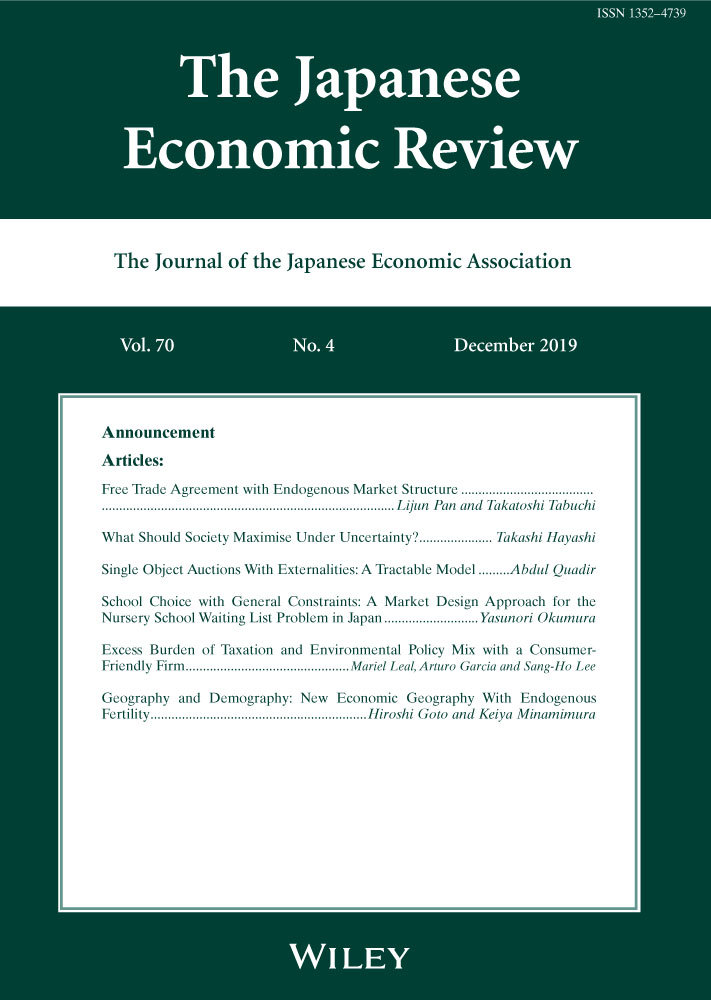Intertemporally Consistent Population Ethics: Birth-date Dependent Classical Principles
Abstract
This paper shows that, in a partially welfarist framework that permits discounting, perperiod social evaluations can be consistent with a timeless social ordering only if social principles lead to the repugnant conclusion. The same result applies if per-period social evaluations are replaced by forward-looking evaluations (social orderings that, in a given period, depend on present and future utilities only). This is the case because geometric classical generalized utilitarian principles are the only social principles satisfying these intertemporal consistency conditions together with some basic assumptions. The conclusion to be drawn from this paper is that history must matter to some extent if social-evaluation principles are to be ethically acceptable.
JEL Classification Numbers: D63, D71




